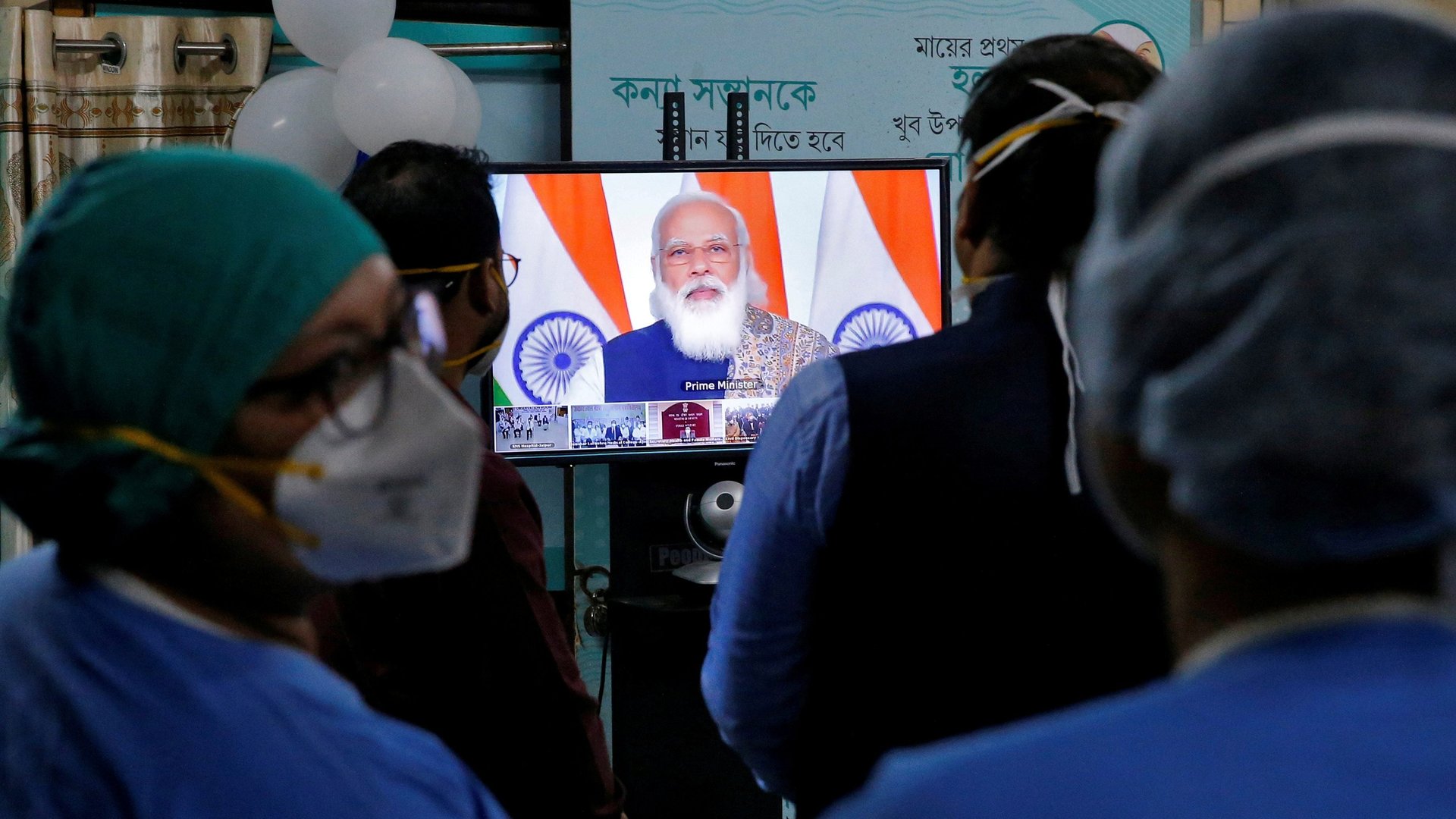India could see over 1 million Covid deaths by August due to Modi’s “self-inflicted national catastrophe”
A growing chorus is now seeing India’s second wave of Covid-19 as a governance failure more than anything else.


A growing chorus is now seeing India’s second wave of Covid-19 as a governance failure more than anything else.
A May 8 editorial in The Lancet, a weekly peer-reviewed medical journal, placed the responsibility of this current Covid-19 disaster in India with prime minister Narendra Modi. In a scathing piece that details the unfathomable devastation in the country, The Lancet wrote that his government “seemed more intent on removing criticism on Twitter than trying to control the pandemic.”
Titled “India’s Covid-19 Emergency,” the editorial in one of the world’s oldest and best-known general medical journals blamed the government for not paying heed to superspreader events and not preventing the unprecedented surge of Covid-19 cases.
Despite warnings about the risks of superspreader events, the government allowed religious festivals to go ahead, drawing millions of people from around the country, along with huge political rallies—conspicuous for their lack of Covid-19 mitigation measures. The message that Covid-19 was essentially over also slowed the start of India’s Covid-19 vaccination campaign, which has vaccinated less than 2% of the population. At the federal level, India’s vaccination plan soon fell apart.
The Lancet believes that in order to come out of this disastrous second wave, India needs to fix its “botched” vaccination drive to begin with.
There are two immediate bottlenecks to overcome: increasing vaccine supply (some of which should come from abroad) and setting up a distribution campaign that can cover not just urban but also rural and poorer citizens, who constitute more than 65% of the population (over 800 million people) but face a desperate scarcity of public health and primary care facilities.
For this, India must leverage its local-level healthcare centres.
The second measure it suggests is that the Modi government should focus on reducing transmission. For this to be successful, The Lancet said accurate and timely data are of utmost importance. Besides government-imposed local lockdowns and correct social messaging, a free flow of information and data is essential. “Modi’s actions in attempting to stifle criticism and open discussion during the crisis are inexcusable,” it wrote.
The Lancet also predicts that, based on the Institute for Health Metrics and Evaluation estimates, India will record 1 million deaths by Aug. 1. Officially, India has a total Covid-19 death count of 238,270 as of today (May 8), which by most accounts is an underestimation—another point of criticism in the journal’s editorial.
If that outcome were to happen, Modi’s Government would be responsible for presiding over a self-inflicted national catastrophe. India squandered its early successes in controlling Covid. Until April, the government’s Covid-19 taskforce had not met in months. The consequences of that decision are clear before us, and India must now restructure its response while the crisis rages. The success of that effort will depend on the government owning up to its mistakes, providing responsible leadership and transparency, and implementing a public health response that has science at its heart.